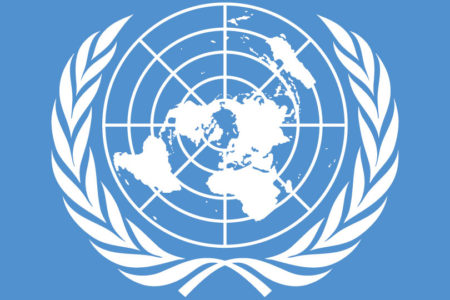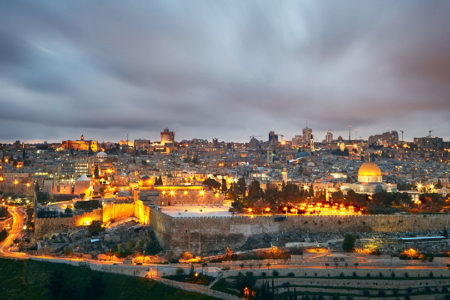Israel Seeks Spot on UN Security Council
Israel is stepping up diplomatic efforts to win a rotating seat on the United Nations Security Council (UNSC) for the 2019–2020 term. The move marks a proactive shift in longstanding Israeli policy: After years of spurning the UN because of its continued anti-Israel bias, Israeli leaders now want to try to effect change from within.
A successful bid would represent a significant victory for Israel, the only country in the Middle East that has never sat on the UNSC. It would confer Israel with international status, recognition, and respect at a time when the Palestinians and their supporters are working assiduously to delegitimize and isolate the Jewish state.
Both the United Nations Educational, Scientific and Cultural Organization (UNESCO) and the Security Council itself passed resolutions that deny a Jewish connection to Jerusalem. The resolutions are part of an ongoing anti-Israel propaganda war to rewrite history and promote the narrative that the Temple Mount and adjoining Western Wall are Muslim, not Jewish.
The Security Council, the most powerful organ of the United Nations, is composed of five permanent members (China, France, Russia, the United Kingdom, and the United States) and 10 nonpermanent members elected for two-year terms.
The nonpermanent seats are divided among five regional blocs: one country from Eastern Europe, two from the Latin American and Caribbean Group, five from Africa and Asia, and two from the Western European and Others Group (WEOG)—which includes Israel.
To win a seat on the UNSC, a country needs at least a two-thirds majority in the General Assembly or support from approximately 130 countries. Elections will be held in 2018 for five nonpermanent seats on the council for two-year mandates that begin on January 1, 2019.
During a recent state visit to Kazakhstan, Israeli Prime Minister Benjamin Netanyahu asked Kazakh President Nursultan Nazarbayev for help in getting Israel elected to the council. “We helped you get accepted as a member of the Security Council, and now we are asking you to help us be a member of the council, as well,” Netanyahu said at a joint press conference at the presidential palace in the Kazakh capital of Astana. Kazakhstan began its two-year term in
January 2017.
Israel first announced its intention to pursue a seat in September 2005, a month after it unilaterally withdrew from the Gaza Strip. But 2019 was the first year in which both WEOG slots were not already claimed by other countries.
As an interim step, and following tireless efforts by the Israeli delegation to the UN, Israel was elected in June 2016 to chair the UN’s legal committee, which plays an important role in shaping international law. It is the first time Israel has headed one of the UN’s six permanent committees since joining the organization in 1949.
If history is any indication, however, Israel’s efforts to obtain a seat on the UNSC will be opposed by Arab and Islamic countries, which form a powerful voting bloc that equals a quarter of the General Assembly’s 193 members.
Israeli Ambassador to the United Nations Danny Danon is undeterred: “Our intention to be on the Security Council is very important to us. It is another glass ceiling that we hope to shatter. This council is the UN’s most important institution, and it plays a key role in safeguarding international peace and security. Just as we insist that Israel must be treated equally throughout the UN, this is true as well for the Security Council.”








